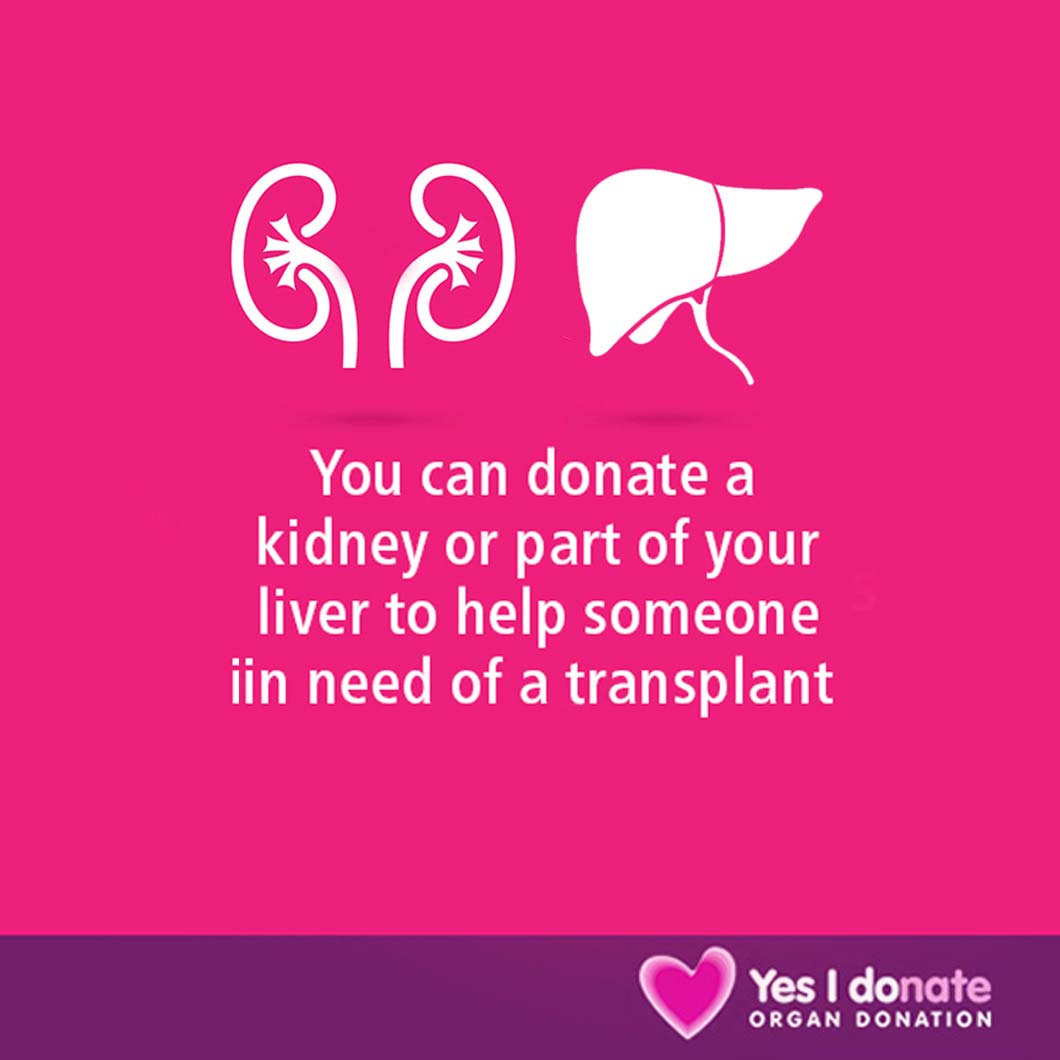Warning as living kidney donations hit near decade low
NHS Blood and Transplant has warned of a worrying decline in living kidney donation as new figures hit an eight year low.
There were 990 living kidney donors during 2017, a 10% decline on the highest ever year, 2013, and the lowest figure since 2009. (1)
The figures have been released for World Kidney Day (March 8) with an appeal for more people to consider making a life-transforming donation while they are still alive.
The decline is worrying because living kidney donation has always been a success story in the UK, accounting for more than 40% of all donors and a third of all kidney transplants for people waiting.
For suitable patients, transplantation is normally the best treatment for end stage kidney disease compared with dialysis. A transplant from a living kidney donor is the best chance of a successful transplant.
Most living donations are between family and friends. People can also choose to donate altruistically, when their kidney is matched anonymously to a suitable person on the waiting list.
Lisa Burnapp, NHS Blood and Transplant Lead Nurse for Kidney Donation, said: “Last year, 261 people died waiting for a kidney transplant, and many of those lives could have been saved through increased living kidney donation.
“Living donation has been a major success story for the UK, with 1 in 3 patients receiving a kidney transplant from a living donor, so this decline is worrying.
“We are investigating the causes and working closely with the clinical community, NHS England and Health Departments in all four UK countries to reverse the trend.
“Anonymous altruistic donations are especially important because they can start transplant chains. It’s no coincidence that the high figures for 2013 came when altruistic donation was at its highest ever level.”
Altruistic donations can start chains of up to three transplants through the UK’s kidney sharing schemes. However the number of altruistic donations has declined from a high of 107 in 2013 to 87 in 2017.
The decline in living kidney donation is especially concerning for the black and Asian patient communities. Organs are matched by blood group and tissue type and people from the same ethnic background are more likely to be a match.
However Black and Asian families are less likely to agree to deceased organ donation or to donate anonymously as living donors, which means black and Asian kidney patients rely disproportionately on living donations from family members. The number of black living kidney donors declined from 40 in 2013 to 19 in 2017. The number of Asian living kidney donors declined from 85 in 2013 to 69 in 2017.
In the UK living kidney transplants have been performed since 1960. There are currently 6,298 people on the transplant waiting list, including 4,960 people waiting for a kidney. (2)
The proposed ‘opt out’ systems being considered for different UK countries, and the one already in place Wales, do not affect living donation.
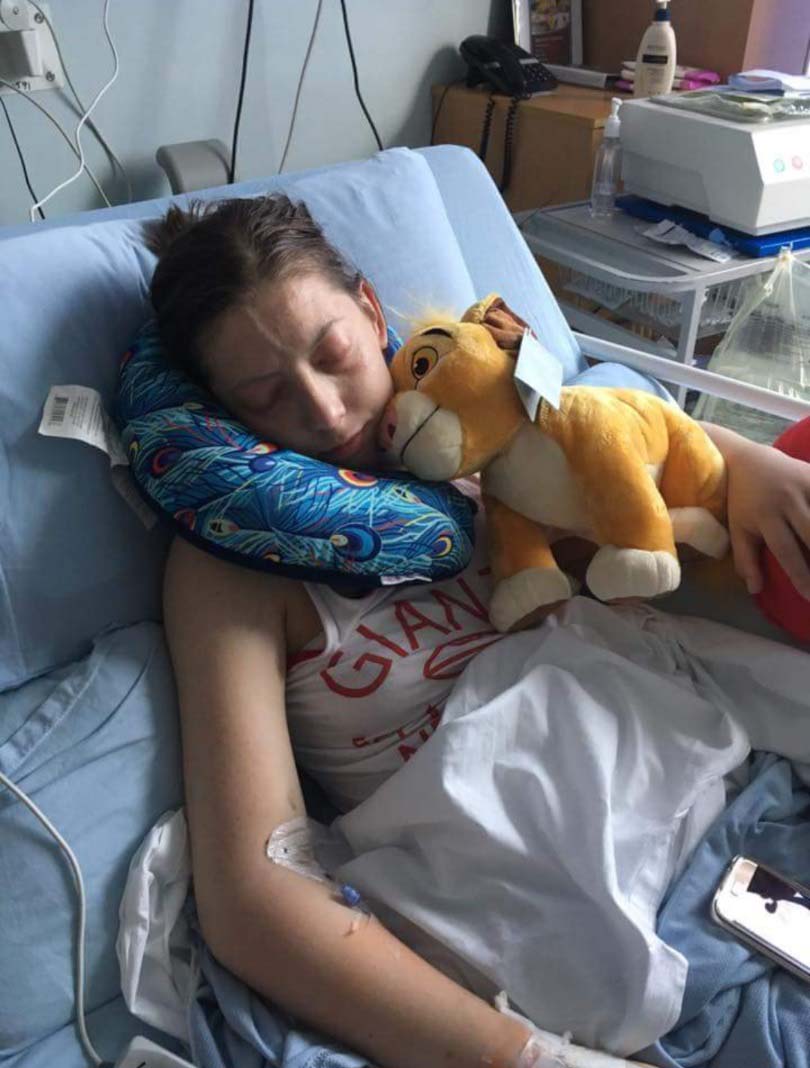 Jade Carr, 24, from Widnes, received a kidney transplant from an anonymous altruistic donor in summer 2017, after four years on and off the waiting list. Right: Jade Carr in hospital before her transplant.
Jade Carr, 24, from Widnes, received a kidney transplant from an anonymous altruistic donor in summer 2017, after four years on and off the waiting list. Right: Jade Carr in hospital before her transplant.
Jade, who’d also had a heart transplant as a child for dilated cardiomyopathy, was largely housebound and bedbound by the time the call came through.
“At times there never seemed to be a light at the end of the tunnel and the waiting was going on forever,” said Jade.
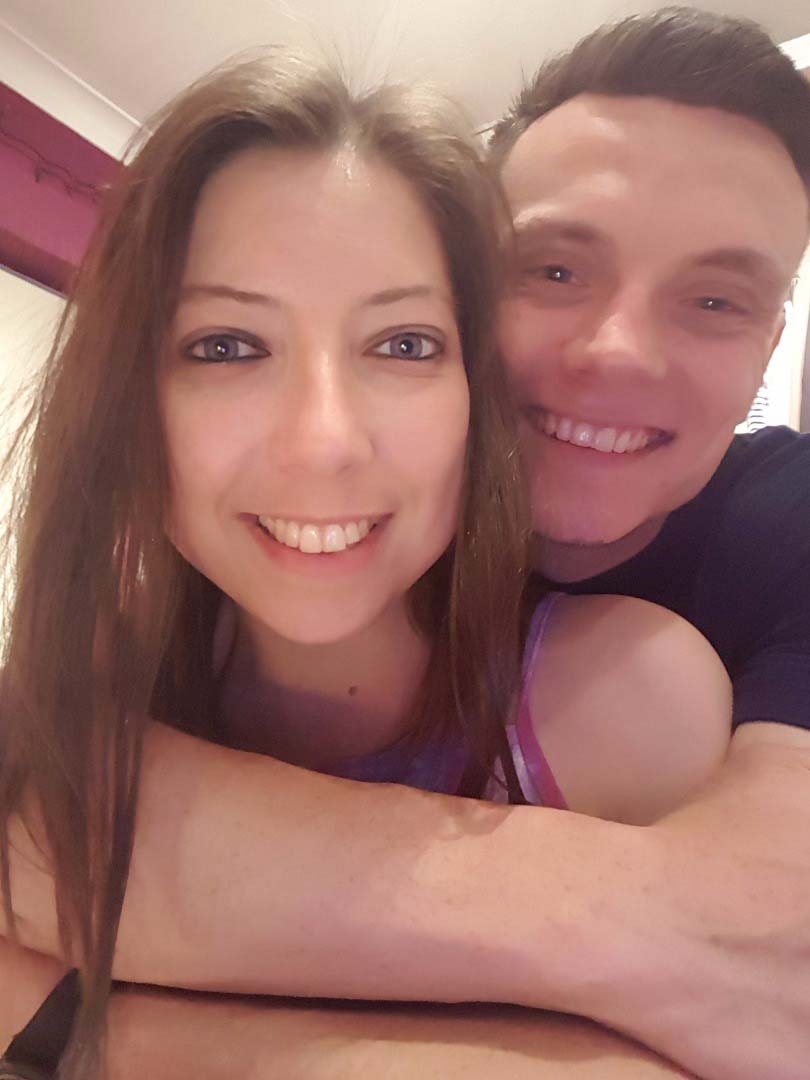 “A lot of people don’t get their transplant and too many people die every day while waiting. There was always that thought that I might not get one.
“A lot of people don’t get their transplant and too many people die every day while waiting. There was always that thought that I might not get one.
“I have been given my whole life back. I now have a future to look forward to with my boyfriend and family that I have desperately longed for." Left: Jade Carr post-transplant with boyfriend Aaron.
“For someone to be an organ donor is incredible but to donate an organ while you are still alive is the ultimate sacrifice and the most inspirational act anyone can do.
"There are not enough words to express how grateful I am to my donor."
Diana Reynolds, 64, from Wells Next To The Sea in Norfolk donated a kidney last year at the age of 63, after seeing a news report about a donor in his 70s.
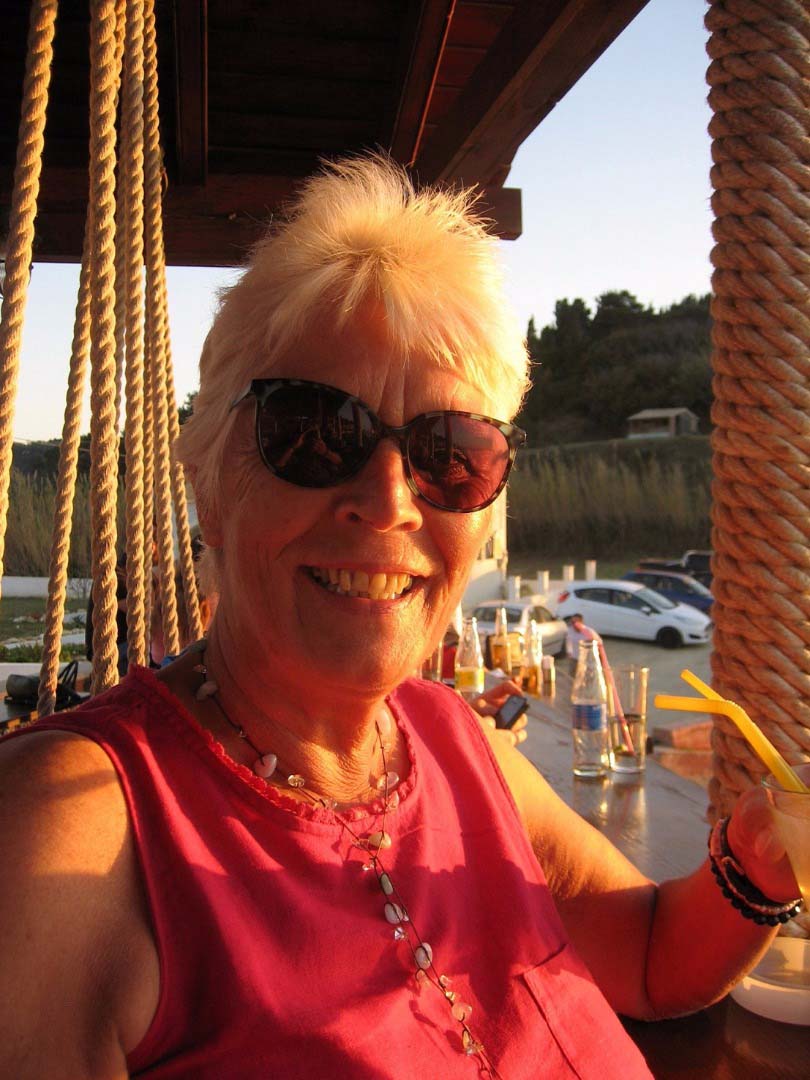 "I just thought if my body is still working all right maybe I can do the same," said Diana, a former cook and restaurateur who now works as a live in carer for the elderly.
"I just thought if my body is still working all right maybe I can do the same," said Diana, a former cook and restaurateur who now works as a live in carer for the elderly.
“They make you do all these tests like running with a heart monitor. The lady said 'basically you have got a Rolls Royce body'. I said 'with my chubby bits and saggy bits it must be an antique model'."
Diana’s donation enabled two more to take place. "I just thought it was wonderful that I could start a chain of transplants," said Diana, a mum of three and a grandparent to 11.
"I would shout from the rooftops what a good thing it was to do.”
Manpreet Singh, 29, from Leeds, has kidney failure due to IgA nephropathy on the waiting list for a kidney since last year due to IgA nephropathy. His older brother is a match to donate but needs to reduce his body weight first. Below: Gurpreet Singh (left) and his son Jorawal with Manpreet Singh (right).
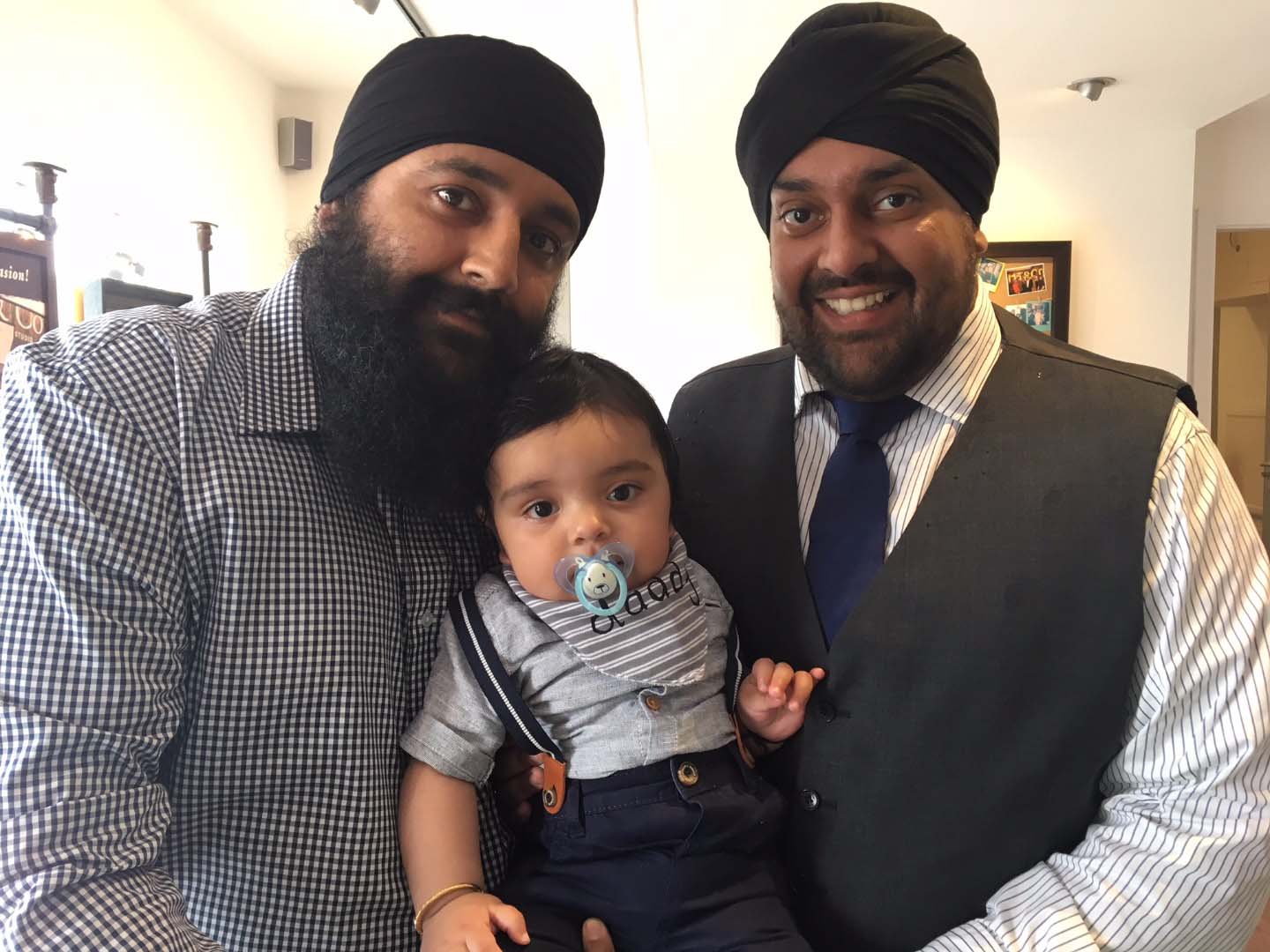 Manpreet, who is listed for transplant at St James University Hospital in Leeds, said: “If I walk 200 metres I get tired. You don’t have any fresh blood going around your body, all the toxins are constantly building up in your blood. You have to change your lifestyle – it’s adapt or die.”
Manpreet, who is listed for transplant at St James University Hospital in Leeds, said: “If I walk 200 metres I get tired. You don’t have any fresh blood going around your body, all the toxins are constantly building up in your blood. You have to change your lifestyle – it’s adapt or die.”
Manpreet, who is a Sikh, was previously not aware of the urgent need for more donors from an Asian background. He said: “I feel like people often only think about these things when it affects your own family and culturally. I think there needs to be more awareness about how badly more donors are needed.”
 Tracey Cossavella, 49, from Cleveland, received a kidney transplant from a living donor in July 2017, for IgA nephropathy, after her partner David Griffiths, 47, donated a kidney on her behalf into the paired and pooled kidney scheme.
Tracey Cossavella, 49, from Cleveland, received a kidney transplant from a living donor in July 2017, for IgA nephropathy, after her partner David Griffiths, 47, donated a kidney on her behalf into the paired and pooled kidney scheme.
Tracey said: “David was devastated when he found out he was not a direct match and at first he didn’t want to know about the paired scheme because he wanted to be my donor.
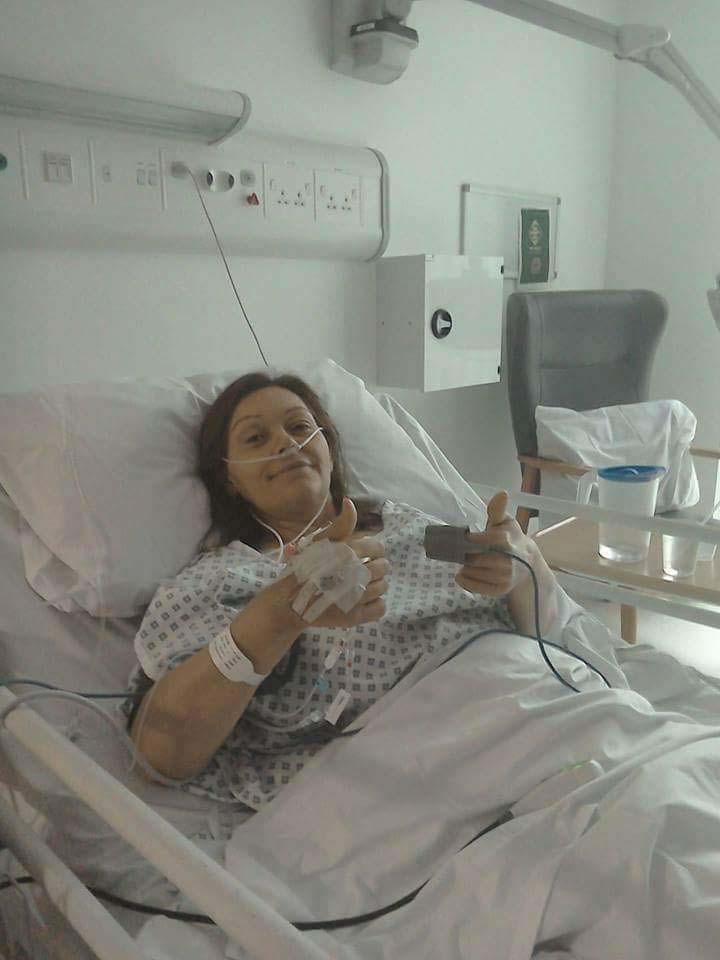 “After a couple of days once he settled he read all the information and agreed that this would be a wonderful idea. The scheme felt exciting and a way to help others as well it is totally genius.
“After a couple of days once he settled he read all the information and agreed that this would be a wonderful idea. The scheme felt exciting and a way to help others as well it is totally genius.
“Our coordinator let us know the next day that everyone else was doing fine which was a huge relief.
“We have always been close but it has definitely made us closer, nobody can prove how much they love you any more than giving you the gift of life.”
For more information on living donation visit https://www.organdonation.nhs.uk//about-donation/living-donation/
Ends
- For more information contact Stephen Bailey on 0151 268 7017 or stephen.bailey@nhsbt.nhs.uk
- Or contact the NHS Blood and Transplant press office on 01923 367600 or via pressoffice@nhsbt.nhs.uk
- For out of hours enquiries please call: 0117 969 2444
Press release notes
(1) Number of living kidney donors in the UK by calendar year
- 2008 - 924
- 2009 - 982
- 2010 - 1027
- 2011 - 1026
- 2012 - 1034
- 2013 - 1104
- 2014 - 1097
- 2015 - 1044
- 2016 - 1018
- 2017 – 990
(2) As of February 23, 2018.
Notes to editors
- NHS Blood and Transplant (NHSBT) is a joint England and Wales Special Health Authority. Its remit includes the provision of a reliable, efficient supply of blood and associated services to the NHS in England. It is also the organ donor organisation for the whole of the UK and is responsible for matching and allocating donated organs.
- Around 24 million people in the UK have already signed onto the NHS Organ Donor Register. These people have joined the Register to record their decision to donate organs and/or tissue after their death for transplantation. This information is used by authorised medical staff to establish whether a person wanted to donate.
- It is quick and easy to join the NHS Organ Donor Register. Visit www.organdonation.nhs.uk or contact our 24 hour a day donor line - 0300 123 23 23.

